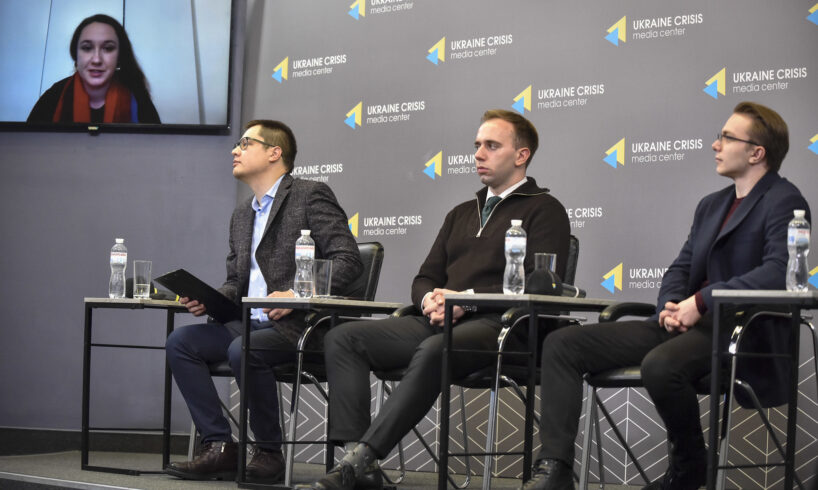
In early October, the parliamentary elections held in the Czech Republic were won by the ANO Movement led by the former Prime Minister Andrej Babiš. Was this result unexpected, how did Russian propaganda influence it, and what changes can be expected in Czech-Ukrainian relations as a result? These questions were discussed by participants in the expert discussion “Ukraine in Czech Electoral Discourse: Trends and Challenges.”
The Czech Republic’s policy towards Ukraine will no longer be as active as it was before. This is the opinion of Mr. Michal Lebduška, a researcher at the Association for International Affairs (AMO).
“I think it would be best for Babiš if this issue did not exist at all. He is not very interested in it; it is not his priority. This politician is not pro-Russian and not very anti-Ukrainian, but he has other priorities,” said the Czech expert.
Analyzing the reasons for Babiš’s return to power, he focused on the economy. It was the economy that became the main weapon of the opposition, as the government failed to overcome the severe economic crisis that arose in 2019. During the election campaign, populists called for helping Czech citizens first and foremost, and not spending money on weapons for Ukraine and aid to refugees.
Mr. Yevhen Magda, director of the Institute of World Policy, called the voters’ decision entirely expected, as the Russian-Ukrainian war has indeed hit the pockets of the Czechs. At the same time, he is far from demonizing individual politicians.
“Andrej Babiš is not Viktor Orbán or Robert Fico. And there is another factor here. I think that not all of us remember the current presidents of Hungary or Slovakia, but Czech President Petr Pavel is in the public eye and always stands out for his pragmatic assessments of the military and political situation. And what is unusual for Ukrainian society is that he did not directly participate in the elections. These are traditions that were established by Czechoslovakia, which stood out for its democratic system during the interwar period between the First and Second World Wars,” noted Yevhen Magda.
Mr. Ján Michalčák, an expert on international security and former head of the Czech Ministry of Defense’s hybrid threats department, is confident that the new Czech prime minister, as a businessman, will keep the door to the West open: “I sincerely believe that Babiš will not block the flow of aid to Ukraine. On the other hand, his rhetoric will be aimed at gathering votes from his partners. The voters who voted for him expect him to fulfill his promises. However, overall, Babiš will keep the Czech Republic on the right track.”
Ms. Natalia Agarkova, founder and editor-in-chief of ProUkrainu.cz, agrees that the Czech government, which includes representatives of anti-Ukrainian rhetoric, will be forced to make some compromises.
“It is difficult to say what these compromises will be and how negative they will be for us, as Ukrainians and for Ukraine. Will it be a reduction in aid or a change in the format of this aid? However, I think that it will happen anyway. Even if the winner, Mr. Babiš, did not use such aggressive rhetoric and did not speak as aggressively about Ukraine as others did,” she added.
According to the journalist, Ukraine became more of a domestic policy issue in these elections in the Czech Republic, and everyone was once again convinced that disinformation can not only change public opinion but also have political consequences.
The moderator of the discussion, Mr. Volodymyr Solovyian, head of the Hybrid Warfare Analysis Group at the Ukraine Crisis Media Center, emphasized the importance of continuing to monitor Russian information influence on political processes in Eastern European countries.
“At present, we cannot predict when the next elections will take place in Ukraine, but in any case, Russia will try to influence their course through social networks. We often discuss the issue both from this stage and in various publications by the Hybrid Warfare Analysis Group. Are there any interesting nuances in this regard that we can note for ourselves in the context of Russian disinformation after the parliamentary elections in the Czech Republic?” He addressed this question to Mr. Vladyslav Moshkivskyi, a junior researcher at the Europe research program of the ADASTRA Analytical Center.
The expert noted in his response that while the war continues in Ukraine, Russia is practicing on elections in Europe.
“They are experimenting. Sometimes they fail, sometimes they succeed. For the Czech Republic, the most dangerous battle will be the presidential election, and for us, of course, it will be the Ukrainian election. And it is in the information field and on social media that we see how they are preparing for this,” emphasized Vladyslav Moshkivskyi.
The event was held as part of the United for Truth project with the support of the Canada Ukraine Foundation #UnitedForTruth.





